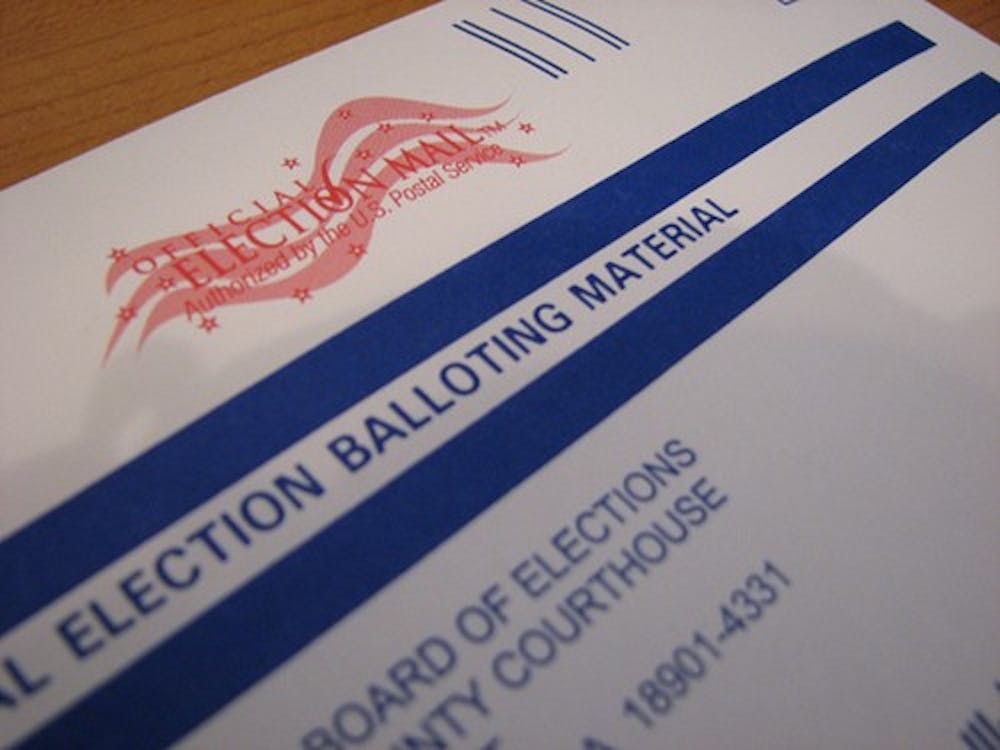Many students categorized as 'tuned out' and 'doers'
By Bonnie Meibers, Senior Staff Writer
With the 2016 presidential election 28 days away, students on Miami's campus are being asked: Will you get out and vote?
After the 2012 election, it was evident that many college-aged people chose not to vote.
A study done by Northwestern University journalism professor Ellen Shearer and the Medill School of Journalism, Media and Integrated Marketing Communications, found nearly 31 percent of nonvoters in 2012 were 18 to 29 years old. Of the entire group of non-voters, over half -- 64 percent -- said they chose not to vote.
"It's worrisome that people are sitting out, because voting is a habit," Shearer said. "If you don't get in the habit now, it becomes harder to pick up later in life."
The study categorized non-voters into six groups: the "pessimists," the "too busys," the "strugglers," the "tuned outs," the "active faithfuls" and the "doers."
"Pessimists" are more likely to feel the country is heading in the wrong direction. This group of non-voters tended to be older. Those who vote because they say they don't have time are categorized as "too busys."
"Tuned outs" are not involved in politics at all. They do not keep up with current events. This group of non-voters is more likely to believe their vote doesn't count. "Doers" are similar to "too busys" in that they cite work as the reason they didn't vote. This group tends to be knowledgeable about politics and current events.
Shearer said she thinks college students are spread amongst all six of these groups, but the one she would categorize the most college students in is the "tuned out" and "doer" categories.
"These students are not that interested in politics and they don't feel like the candidates are talking to them," she said.
It is objectively more difficult, Shearer said, for a college student to vote, than for an adult to do so. Having to register in a different state or submit an absentee ballot deters some "too busys" from voting.
Enjoy what you're reading?
Signup for our newsletter
Ryan, who asked his last name not be used, is a sophomore at Miami. Politically, he leans right, but he is not voting in this presidential election.
"I don't feel like either candidate represents my views," he said.
Another reason Ryan won't be voting in November is because he takes issue with how the political system works.
"I don't feel like voting gives you a real say because, at end of day, the electoral college makes that decision," Ryan said. "It's counterintuitive to me."
Ryan feels like his vote doesn't actually matter.
"I don't see a difference in not voting and casting a third party vote," he said.
Ryan would describe himself as someone who is informed on current events, primarily by Twitter and Reddit, but on the list of things he cares about, he says politics is "very, very low."
Ryan falls under the category of "tuned out," said Shearer.
Overall, the study found that, as a group, non-voters are markedly less likely than those who vote to follow what's going on in government and public affairs.
Shearer's study also shows that non-voters lean conservative, a tendency Bryan Marshall, professor and assistant chair of political science, said Miami students share.
This could be for several reasons, he said. Oxford is located in the Rust Belt, a part of the northeastern and midwestern United States characterized by declining industry, factories and a shrinking population, which tends to be Republican.
The typical student who attends Miami comes from an upper socioeconomic status, Marshall said, and those people tend to support the Republican Party.
In line with the data found by nonvotersinamerica.com, political science professor Erica Edwards says that historically there is a low voter turnout among younger demographics.
The fact that the campus leans center right may exacerbate that fact, Edwards said. She's not so sure that students who identify as Republican will get out and vote, since Donald Trump is not many of these students' first choice, Edwards said.
Gabriela DiCristoforo, a junior from Middletown, Ohio, said Trump is not her first choice, but she will be voting for him. She will be voting for Trump with the hope that the people who support him "will make sure he doesn't do anything stupid."
"Hopefully, Trump and his cabinet will help us become strong again," she said.
DiCristoforo thinks that the country is headed in the wrong direction and that other countries don't take America as seriously as they once did.
Millennials, like Gabriela and Ryan, are currently the largest population group and voting bloc. This is something that Shearer says makes the trend of students not voting a bit more unsettling.
They have unique issues that are important to them and if that largest group isn't voting, she says, the concerns of that group will not be heard by politicians and addressed.
"Make sure people know that you're watching," Shearer said.




